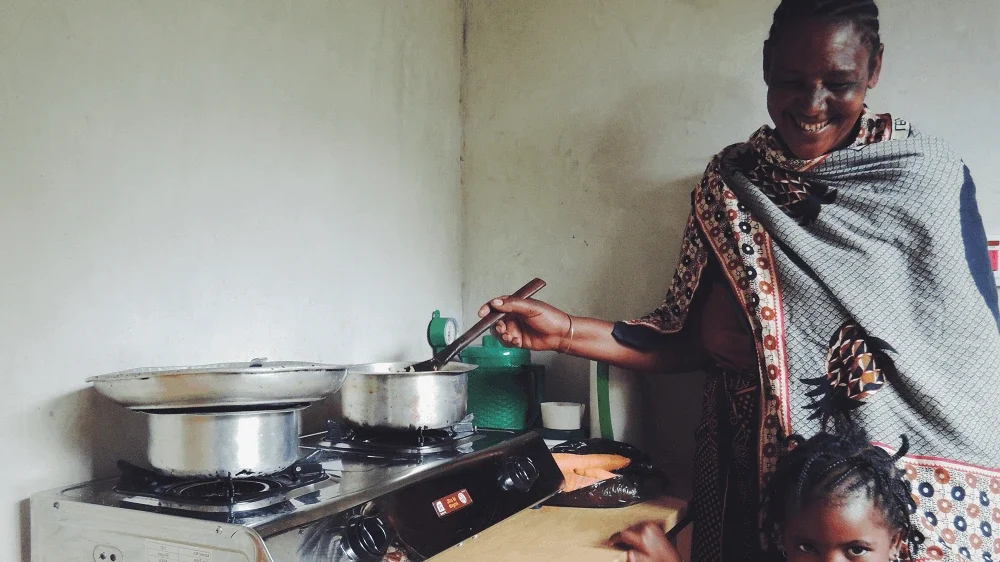Reducing Household Air Pollution in Ghana through Community-Level Transitions to Clean Cookstoves and Fuels
July 9,2022 | Ongoing Project | Reading time: 6 min
Investigators
Khrc: Kwaku Poku Asante, Sulemana Watara Abubakari, Edward Anane Apraku, Theresa Tawiah, Martha Ali
Columbia University: Darby Jack
University of California Santa Barbara: Kelsey Jack
Background:
Globally, nearly 3 billion people use traditional cookstoves and fuels. In Ghana, about 70% of the population generates energy for cooking by burning biomass and other solid fuels in open fires. These inefficient
energy sources produce one-quarter of all black carbon emissions globally, and lead to nearly four million preventable pollution-related deaths per year, including half a million children under the age of 5 years who die from pneumonia.
Women are also particularly impacted, both because of their exposure in the home and because the burden of collecting firewood and other fuels falls to them.
A number of interventions over the last decade have not significantly reduced the negative impact of the use of traditional cookstoves. Study participants continue to use polluting energy systems, and emissions from neighbors, effectively negate the health benefits of any one household’s transition to clean energy systems. This study consolidates past experiences with clean household energy – with a particular focus on behavioral and cultural questions – and also draws on novel insights into both clean cooking technologies and behavioral antecedents to their sustained use.

Objectives
The primary objective is to reduce household air pollution exposure by promoting community-level transitions to clean cooking with the target of achieving WHO health-based air quality targets. Specifically:
1. Develop and integrate
new - but evidence based - behavior change approaches that consider decision-making within the home and at the community level to encouraging exclusive, sustained use of clean cooking technologies.
2. Develop a portfolio or
stack of clean options (fuels, stoves, and practices) that together can fully displace traditional open fires in homes and small businesses, and enable exclusive, sustained use of clean alternatives.
3. Aim to transition entire
communities towards clean alternatives, rather than being focused on the number of households affected, in order to achieve anticipated air-quality improvements.
4. Identify broader energy system changes that will support
and sustain household- and community-level transitions.
Methodology
The project will have two main phases: an assessment phase and an intervention phase. The assessment phase will develop a detailed quantitative picture of Ghana’s current household energy systems, and will
evaluate constraints and opportunities. In the intervention phase, we will deploy a set of promising technologies, business models and behavior change approaches in a carefully monitored, large scale test program in a to-be-determined
set of communities in Ghana. This will give us the opportunity to evaluate how well the technologies and business models meet household energy needs, and also to track the costs and logistical challenges associated with delivering
clean energy services at scale
Expected outcomes
-
1.Nationally representative dataset with a strong empirical, understanding of energy use patterns, prices end users are currently paying, and spatial distribution of air pollution risk.
-
2.It is expected that behavior change intervention will improve clean cookstove adoption and sustained use
-
3.Government of Ghana will have a state-of-the art system for tracking household energy and resulting air pollution exposures.
Funders
Columbia World Projects
